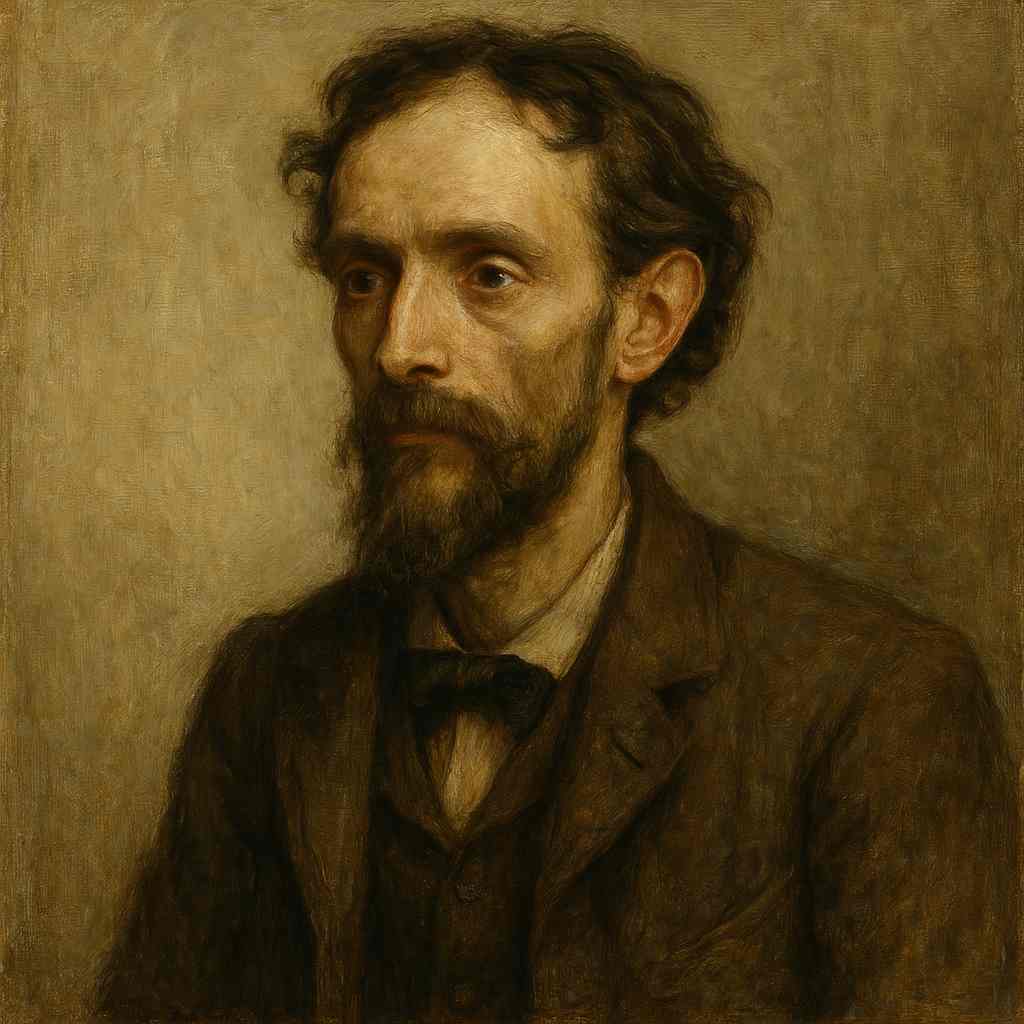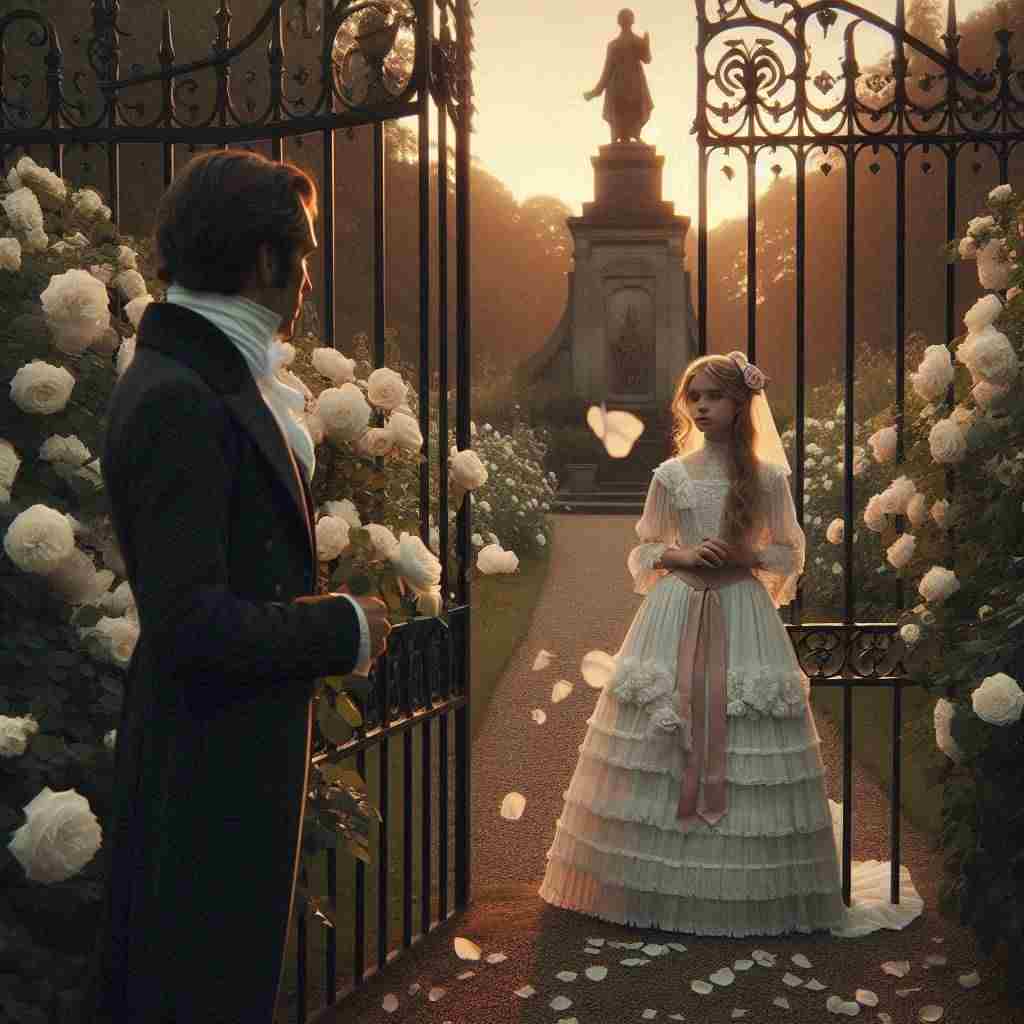1 Poems by Francis Thompson
1859 - 1907
Francis Thompson Biography
Francis Thompson, born in 1859 in Preston, Lancashire, stands as a singular figure in the annals of English poetry, his life and work a testament to the tumultuous relationship between artistic genius and personal tribulation. The son of a doctor, Thompson was raised in a devout Catholic household, an upbringing that would profoundly influence his later writings and spiritual outlook. From an early age, he displayed a keen sensitivity and an inclination towards the poetic, traits that would both elevate his art and complicate his earthly existence.
Thompson's formal education began at Ushaw College, where he was initially groomed for the priesthood. However, the young man's temperament proved ill-suited to the rigors of clerical life, and he left the institution without taking orders. This early divergence from his expected path foreshadowed the unconventional trajectory his life would take. Following his departure from Ushaw, Thompson enrolled at Owens College in Manchester to study medicine, following in his father's footsteps. Yet again, he found himself at odds with his chosen profession, and after repeated failures in his examinations, he abandoned his medical studies in 1885.
The subsequent period of Thompson's life was marked by a descent into poverty and opium addiction, a struggle that would define much of his adult years. Estranged from his family and adrift in London, he lived as a vagrant, experiencing firsthand the harsh realities of Victorian England's underclass. This period of destitution, while deeply traumatic, provided Thompson with a wellspring of experiences and observations that would later infuse his poetry with a unique blend of mystical vision and earthly suffering.
It was during this nadir that Thompson's fortunes began to turn, albeit in a manner that seems almost providential in retrospect. In 1888, he sent a manuscript of poems to Wilfrid Meynell, editor of the Catholic literary magazine "Merry England." Meynell, recognizing the exceptional talent evident in Thompson's work, not only published his poetry but also took it upon himself to rescue the poet from his dire circumstances. The Meynell family, Wilfrid and his wife Alice, became Thompson's benefactors and close friends, providing him with the stability and support he needed to nurture his poetic gifts.
Under the Meynells' care, Thompson entered a period of recovery and prolific creativity. He produced some of his most celebrated works during this time, including "The Hound of Heaven" (1893), a poem that has since become one of the most widely quoted in the English language. This ode to divine pursuit, with its haunting imagery and profound spiritual insight, encapsulates many of the themes that dominated Thompson's oeuvre: the tension between the divine and the human, the struggle of the soul, and the ultimate redemption found in surrender to a higher power.
Thompson's poetic style was characterized by its rich, sometimes ornate language, intricate metaphors, and deep engagement with Catholic mysticism. He drew inspiration from earlier poets such as John Donne and William Blake, as well as his contemporary Gerard Manley Hopkins, with whom he shared a penchant for inventive language and spiritual themes. Thompson's work often explored the intersection of the spiritual and the sensual, finding in earthly beauty a reflection of divine grace.
Beyond his poetry, Thompson also distinguished himself as an essayist and literary critic. His prose writings, particularly his essay on Shelley, reveal a keen critical mind and a profound understanding of the poetic tradition. Thompson's insights into the nature of poetry and the role of the poet in society continue to be valued by scholars and writers alike.
Despite the relative stability and success he found in his later years, Thompson's health remained fragile, weakened by years of hardship and opium use. He spent his final years in various sanatoria, continuing to write even as his physical condition deteriorated. Francis Thompson died on November 13, 1907, at the age of 47, leaving behind a body of work that, while not vast, is remarkable for its intensity and spiritual depth.
In the years following his death, Thompson's reputation has undergone several shifts. Initially hailed as a major poet, his work fell somewhat out of favor in the modernist reaction against Victorian sensibilities. However, recent decades have seen a renewed appreciation for Thompson's unique voice and vision. Scholars have found in his work not only a powerful expression of Catholic mysticism but also a prescient engagement with themes of alienation and spiritual seeking that resonate with contemporary readers.
Thompson's life and work continue to fascinate literary scholars and spiritual seekers alike. His journey from the depths of despair to poetic acclaim offers a compelling narrative of redemption through art. More importantly, his poetry, with its intricate fusion of the divine and the human, the mystical and the mundane, continues to offer readers a unique perspective on the spiritual life, one that acknowledges the struggles of human existence while pointing towards transcendent beauty and meaning.
The legacy of Francis Thompson extends beyond his individual poems to encompass a broader reflection on the nature of artistic creation and spiritual experience. In his life and work, we see the complex interplay between suffering and insight, between the wounds of the world and the balm of divine grace. For students of literature and seekers of spiritual wisdom alike, Thompson remains a figure of enduring interest, his poetry a testament to the enduring power of the human spirit to find light in the darkest of places.
This text was generated by AI and is for reference only. Learn more
Username Information
No username is open
Unique usernames are free to use, but donations are always appreciated.
Quick Links
© 2024-2025 R.I.Chalmers (V2Melody).

All music on this site by R.I.Chalmers (V2Melody) is licensed under a Creative Commons Attribution-NonCommercial 4.0 International License.
Attribution Requirement:
When using this music, you must give appropriate credit by including the following statement (or equivalent) wherever the music is used or credited:
"Music by R.I.Chalmers (V2Melody) – https://v2melody.com"
Support My Work:
If you enjoy this music and would like to support future creations, donations are always welcome but never required.
Donate


